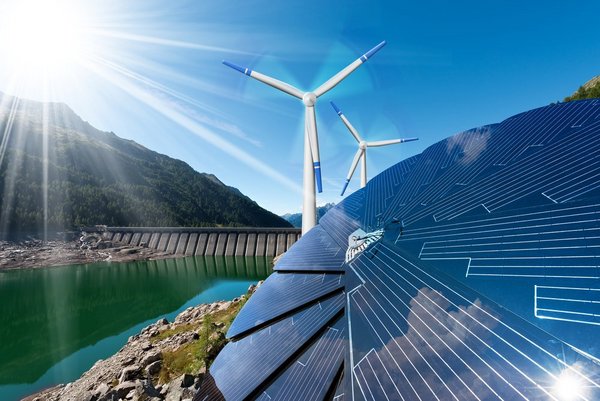 Read this article in French
Read this article in French- Share this article
- Subscribe to our newsletter
Energy justice index casts spotlight on energy transition in the Global South
Can the transition to a zero-carbon society in the Global South drive sustainable development? A team led by scientists from the Research Institute for Sustainability (RIFS) in Potsdam, Germany, has developed the first quantitative approach to measure the extent to which energy transitions in the Global South incorporate elements of energy justice.
The study "An energy justice index for the energy transition in the Global South”, prepared by lead author Maria Apergi and a team of researchers, allows for a standardised, quantitative comparison of the transition processes of different countries. A quantitative measure of the extent to which energy transitions in countries outside the Global North live up to the imperative of energy justice has been lacking to date. The index presented in the journal Renewable and Sustainable Energy Reviews in March 2024, addresses this deficit.
The concept of energy justice
Energy justice is a concept that engages with the fairness of energy systems, taking into account the social and development implications of energy technologies, policies, and projects. A large share of the relevant studies on energy justice published to date have focused on assessing the justice implications of low-carbon transitions and renewable energy. The newly developed index provides an analytical framework for identifying injustices in energy processes and putting forward solutions. The index was composed by assigning various components of energy justice to the three core tenets of Procedural Justice, Recognition Justice and Distributional Justice.
Study focuses on four countries
The study is based on empirical assessments of four country case studies for the years 2010–2019: Kenya, Jordan, Chile and Malaysia. These countries were chosen in order to obtain a cross-section of the world regions pertinent to the Global South. In addition, all four countries have to some degree been pioneers in the energy transition in their respective regions.
The analysis highlights the limited availability of secondary data to measure some elements of energy justice and the difficulty of finding information on the processes followed in renewable energy project development, especially in the case of Malaysia. According to the authors, this underlines the need to improve the availability of relevant data.
Injustices in all countries
According to the authors, the results reveal the presence of distributional, procedural and recognition justice issues in the energy transitions of all four case study countries. The index results also show a notable variation of the country scores across the different components and tenets of energy justice.
The authors emphasise that the ranking of the countries covered does not always correspond to the level of their economic development. Malaysia and Chile, for example, scored higher in terms of distributional justice, while Kenya and Jordan did better when procedural justice was concerned. Kenya also scored higher regarding intergenerational justice and distribution of costs and benefits of renewable energy infrastructure.
Implications for climate policy
The researchers recommend that national governments and transnational players such as multilateral institutions and investors work towards the establishment of policy frameworks and strategies that systematically integrate justice concerns. This relates to regulations addressing due process in the design of energy systems as well as access, affordability and other distributional considerations.
Policies to advance recognition justice through rural electrification programmes and microfinancing, for example, are also indispensable in the protection of vulnerable groups, the authors note. Economic instruments that encourage investment in renewable energies should include social criteria as well. In addition, policy-makers could benefit from introducing monitoring, reporting and data verification procedures for energy justice-related indicators, so as to improve data quality and availability.
The index presented in the study will contribute to the discussion on energy justice and facilitate assessments of energy justice over time and between countries. The results illustrate the multidimensionality and complexity of the energy justice concept, especially when it is applied to the energy transition. Underpinned by a wealth of data and made accessible online, the index can become a valuable tool for researchers and decision-makers in their efforts to systematically study and improve energy justice – in the Global South and beyond.
(RIFS/wi)
Reference:





Add a comment
Be the First to Comment